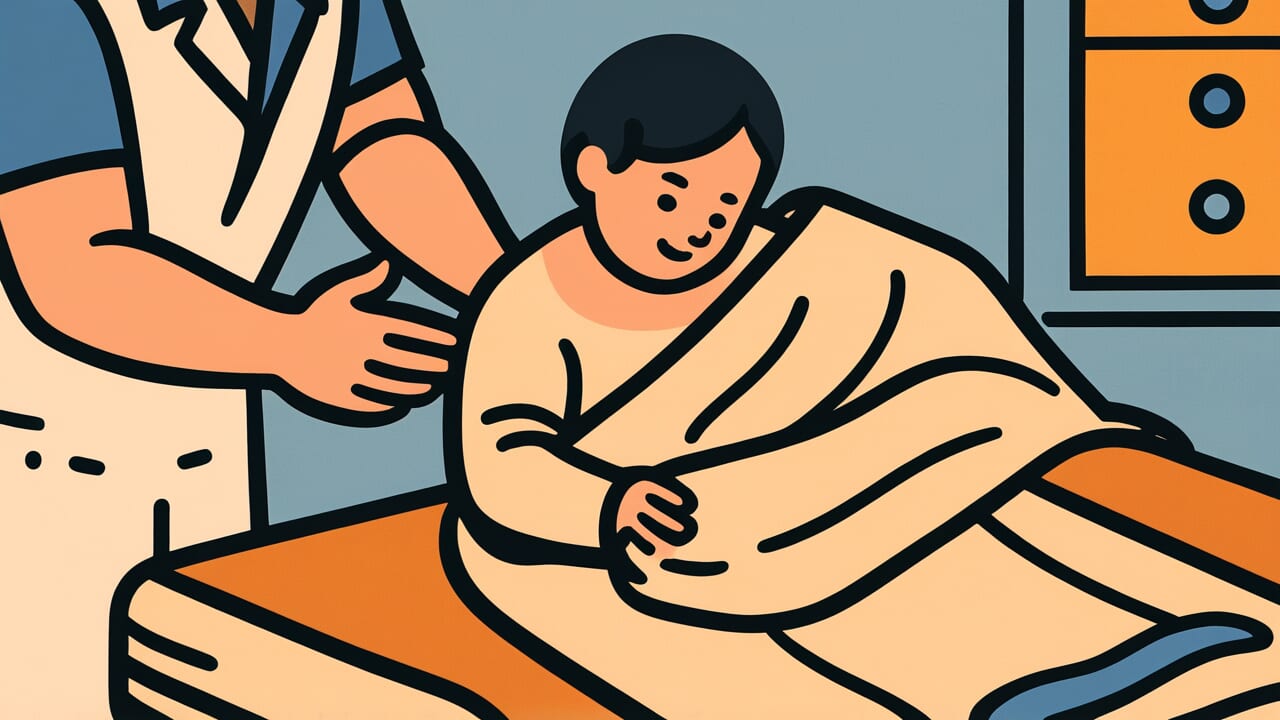How to Read “Preparing swaddling clothes before the baby is born”
Umarenu saki no mutsuki sadame
Meaning of “Preparing swaddling clothes before the baby is born”
This proverb describes preparing for or planning something that hasn’t happened yet. Just like getting diapers ready before a baby is born, it refers to making thorough preparations before events actually occur.
People use this saying when commenting on someone who prepares at what seems like a premature stage. However, this proverb often carries a critical tone.
It’s commonly used to suggest “Isn’t it too early?” or “Aren’t you worrying unnecessarily?” The saying warns against preparing too early for things that aren’t certain to happen.
It can also carry a hint of irony. Today, people understand it less as praise for good planning and more as pointing out overly hasty actions or needless worry.
Origin and Etymology
The origin section could not be generated.
Interesting Facts
The word “mukutsugi” (襁褓) originally comes from classical Chinese texts. “Kyo” (襁) means cloth for wrapping babies, while “ho” (褓) means cloth for carrying them on the back.
Together, they came to mean all types of cloth needed for infant care. In Japan, the native word “mutsuki” was applied to these characters.
Some scholars suggest “mutsu” connects to “mutsumajii” (睦), meaning intimate or affectionate. This would represent the close bond between parent and baby.
During the Edo period, families had special customs for birth preparation. Relatives and neighbors would gather during pregnancy to sew baby clothes together.
This wasn’t just practical work. It served as a ritual where the entire community welcomed the new life together.
Usage Examples
- Going furniture shopping for living alone before the acceptance announcement? That’s preparing swaddling clothes before the baby is born.
- Booking a celebration venue before the project is even approved is exactly preparing swaddling clothes before the baby is born.
Universal Wisdom
Humans have a unique ability to imagine the future and prepare for it. This proverb has been passed down through generations because it accurately captures how this ability can sometimes go too far.
When we feel anxious, we try to calm ourselves by doing something. Preparing for things that haven’t happened yet might actually be a psychological defense mechanism.
We’re trying to control an uncertain future. By preparing, we seek the reassurance that “I’ll be okay.”
But our ancestors also saw the danger in this behavior pattern. Over-preparing for unconfirmed events can make disappointment worse when expectations aren’t met.
It can also scatter our attention away from what truly matters “now.”
This proverb doesn’t reject planning itself. Instead, it teaches that there’s an appropriate timing for everything.
Preparing too early can not only be wasteful but also prevent us from living in the present. Life is inherently uncertain, and how we face that uncertainty matters most.
Don’t rush, but don’t be lazy either. Prepare appropriately at the appropriate time. This delicate sense of balance is the human wisdom needed across all ages.
When AI Hears This
In information theory, an unknown state has “maximum entropy,” meaning possibilities spread infinitely. Before a baby is born, we don’t know their gender, personality, or physical traits.
At this point, all swaddling cloth choices theoretically have equal “correctness.”
Here lies an interesting paradox. The less information humans have, the more they mistakenly believe their plans are accurate.
Behavioral economist Kahneman identified the “planning fallacy.” People make optimistic, detailed plans precisely when information is scarce in early stages.
For example, parents in early pregnancy often create “perfect parenting plans.” But once the baby arrives, their unique constitution, allergies, and growth rate make prior plans nearly useless.
From a Bayesian statistics perspective, this means judging by “prior probability” alone while ignoring “posterior probability” updates. In other words, making concrete preparations based only on general theory before obtaining actual data.
Statistically, it’s like making precise predictions with zero sample size.
What makes this proverb sharp is how it exposes our tendency to mistake “information gaps” for “free planning space.”
When uncertainty is high, we should be more cautious. Yet we fall into the cognitive trap of acting with false confidence.
Edo-period people understood this through experience.
Lessons for Today
This proverb teaches us how to face anxiety. Modern society overflows with information, much of it fueling worries about the future.
Do you sometimes overreact to unconfirmed events and get caught up in endless preparation?
The key isn’t avoiding preparation altogether. It’s recognizing the right timing. Things have a natural flow, and acting in harmony with that flow saves wasted energy.
Acting too early can actually reduce your flexibility.
If you’re rushing to prepare for a future that hasn’t happened yet, pause for a moment. Is this really something you need to do now?
Watching the situation a bit longer might reveal better options.
Preparing for the future matters, but living fully in this present moment matters just as much. For things that won’t be too late after they’re certain, wait until they’re certain.
That patience and trust might actually enrich your life.



Comments